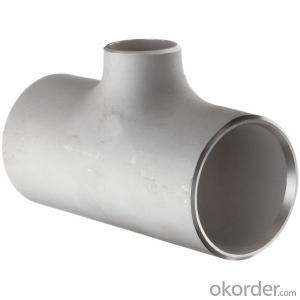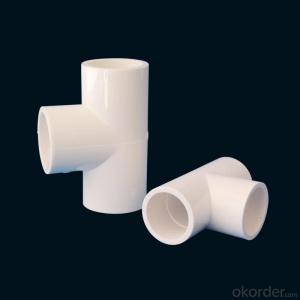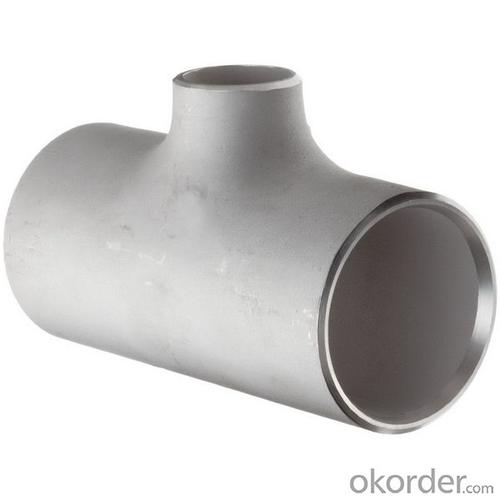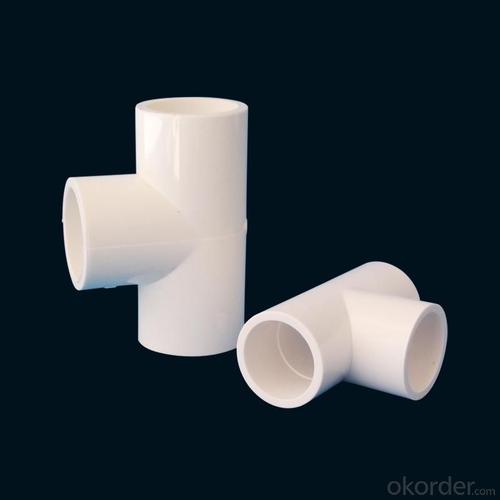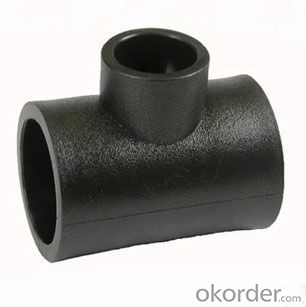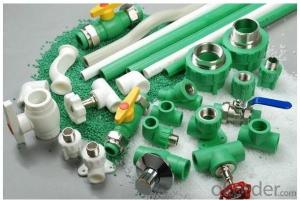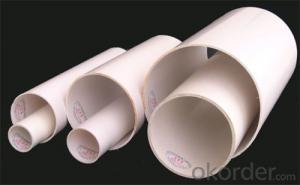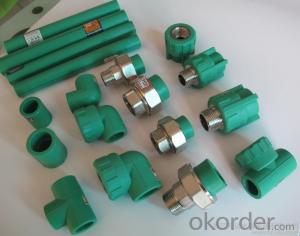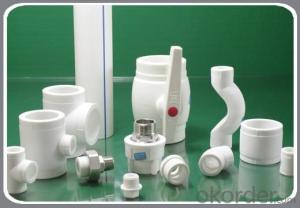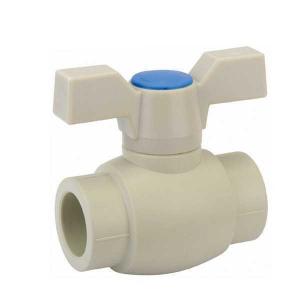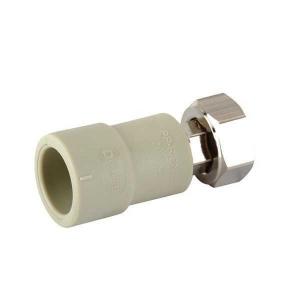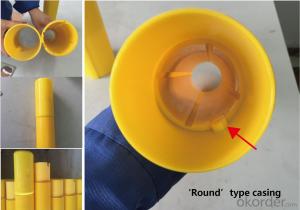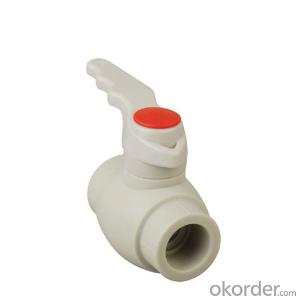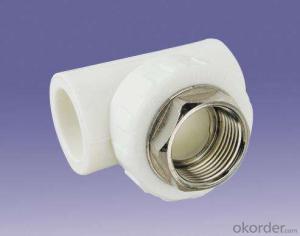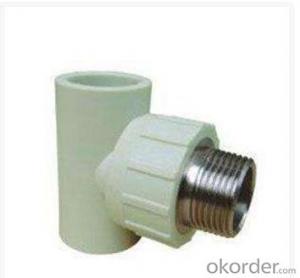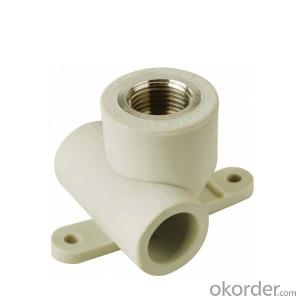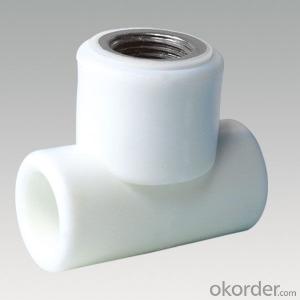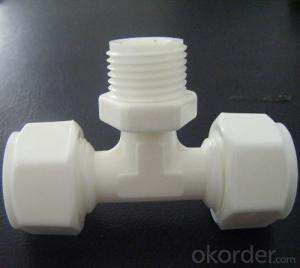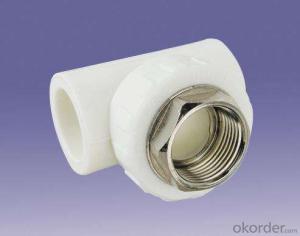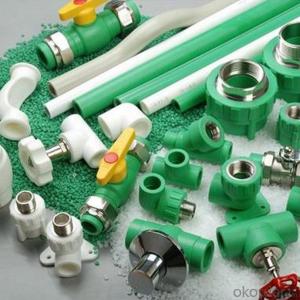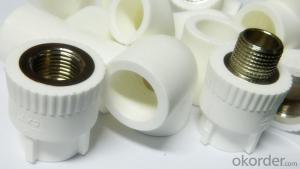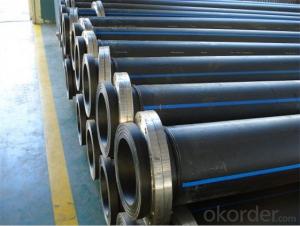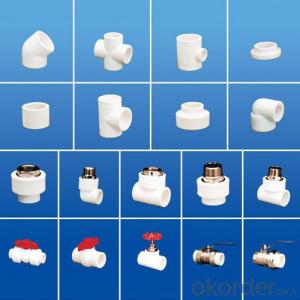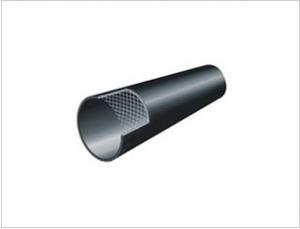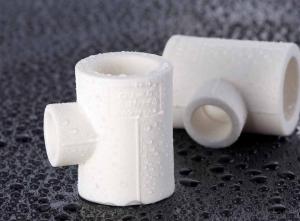3/4" Plastic Water Pipe Fittings - New PPR Equal Tee Degree for Industrial Fields
- Loading Port:
- Tianjin
- Payment Terms:
- TT OR LC
- Min Order Qty:
- 1000 pc
- Supply Capability:
- 100000 pc/month
OKorder Service Pledge
OKorder Financial Service
You Might Also Like
Quick Details
Material: Plastic
Technics: injection
Place of Origin: China (Mainland)
Connection: Welding
Head Code: round
Color: Green, White, Grey, Blue
Product Applications:
1.Distribution for cool and hot water
2.Duct for drinkable water system
3.Pipes for kinds of high-temperature and low-temperature heating system
4.Pipes for heating and coolling settings in solar energy system
5.Connecting pipe for air conditioner
Specifications
Standard: DIN8077/8078
Material: R200P from Korea
Size: DN20-63
Color: Green, White, Grey, Blue
Packaging Details
Packaging Details: PE bag + carton
Delivery Detail: 15 Days
Product Description
Pressure | Size(mm) | Pressure | Size(mm) |
PN1.25MPA | 20*2.0 |
PN1.6MPA | 20*2.3 |
25*2.3 | 25*2.8 | ||
32*2.9 | 32*3.6 | ||
40*3.7 | 40*4.5 | ||
50*4.6 | 50*5.6 | ||
63*5.8 | 63*7.1 | ||
75*6.8 | 75*8.4 | ||
90*8.2 | 90*10.1 | ||
110*10.0 | 110*12.3 |
Product Show
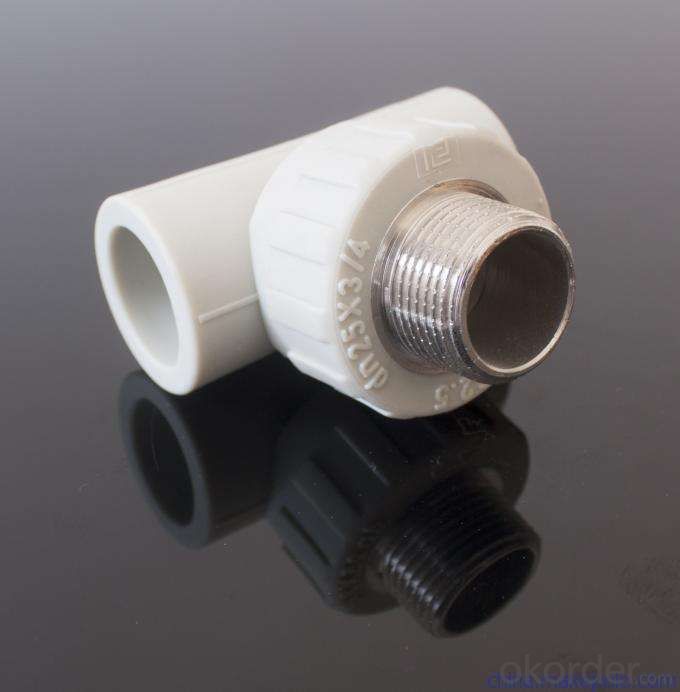
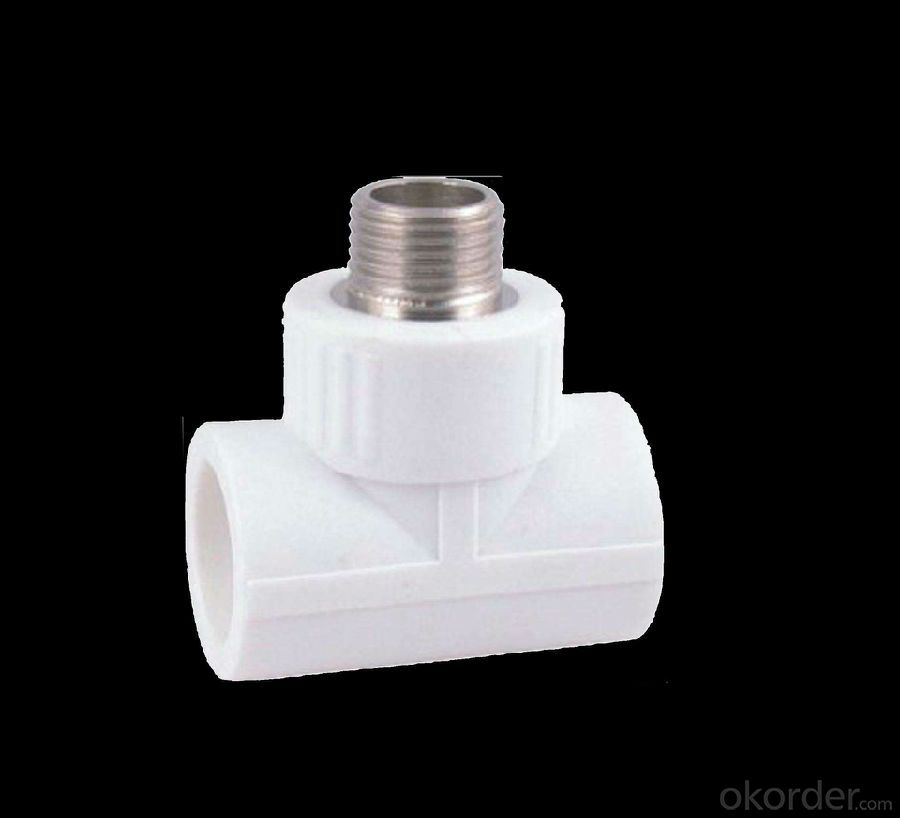
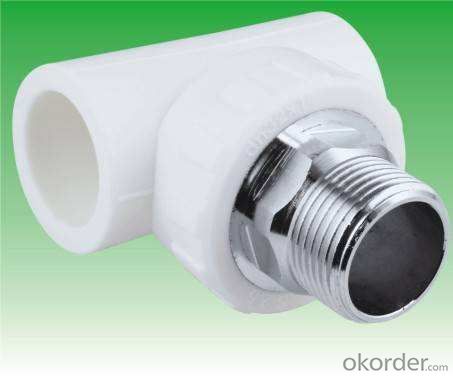
Advantanges
1, High Temperature Resistance: the maximum sustained working temperature is up to 70 Degrees Celsius, the maximum transient temperature is up to 95 Degrees Celsius.
2, Heat insulation and Saving Energy: low thermal conductivity which is only 1/1500 of brass pipe, and 1/250 of steel pipe.
Non-toxic: no heavy metal additives would not be covered with dirty or contaminated by bacterium.
3, Corrosion Resistant: resist chemical matters or electron chemical corrosion.
4, Lower Installation Costs: light weight and good hot-melt performance can reduce installation costs by as much as 50% over metal piping system.
5, Higher Flow Capacity: smooth interior walls result in lower pressure loss and higher volume than metal pipes.
6, Long Life: more than 50 years under normal conditions.
7, Recycled and Environment-friendly.
- Q: Can plastic pipe fittings withstand high temperatures?
- Yes, plastic pipe fittings can generally withstand high temperatures, but the specific temperature range will depend on the type of plastic used and their design. Some plastic materials, such as PVC (polyvinyl chloride), CPVC (chlorinated polyvinyl chloride), and PEX (cross-linked polyethylene), are commonly used for piping systems and can handle elevated temperatures. However, it is important to check the manufacturer's specifications and guidelines to ensure that the specific plastic pipe fittings are suitable for the intended high-temperature applications.
- Q: Are plastic pipe fittings resistant to thermal shock?
- Yes, plastic pipe fittings are generally resistant to thermal shock.
- Q: Can plastic pipe fittings be used in fireproof systems?
- No, plastic pipe fittings cannot be used in fireproof systems as they have a low melting point and are not resistant to high temperatures.
- Q: Are plastic pipe fittings resistant to UV degradation?
- Yes, plastic pipe fittings can be resistant to UV degradation depending on the specific type of plastic used and the additives incorporated during their manufacturing process. Some plastics, such as PVC (polyvinyl chloride), are inherently UV resistant, while others may require the inclusion of stabilizers or UV inhibitors to enhance their resistance to UV degradation. Therefore, it is crucial to consider the type of plastic and its specific composition when determining the level of UV resistance for plastic pipe fittings.
- Q: Can plastic pipe fittings be used in laboratory systems?
- Yes, plastic pipe fittings can be used in laboratory systems. They are commonly used due to their durability, corrosion resistance, and affordability. However, it is important to ensure that the specific type of plastic used is compatible with the chemicals and substances being handled in the laboratory.
- Q: Are plastic pipe fittings resistant to bacterial growth?
- Yes, plastic pipe fittings are generally resistant to bacterial growth. Their smooth surfaces and non-porous nature make it difficult for bacteria to adhere and multiply on the fittings. Additionally, many plastic pipe fittings are made with antimicrobial additives that further inhibit bacterial growth.
- Q: Are plastic pipe fittings resistant to impact damage?
- Yes, plastic pipe fittings are generally resistant to impact damage. They are designed to withstand various levels of force and impact, making them durable and less prone to damage compared to other materials. However, the level of impact resistance may vary depending on the specific type and quality of the plastic used in the fittings.
- Q: Can plastic pipe fittings be used for industrial waste disposal systems?
- Yes, plastic pipe fittings can be used for industrial waste disposal systems. Plastic pipe fittings are commonly used in industrial applications due to their durability, corrosion resistance, and ability to handle various chemicals. They provide a reliable and cost-effective solution for industrial waste disposal systems.
- Q: Are plastic pipe fittings resistant to soil movement and settlement?
- Yes, plastic pipe fittings are generally resistant to soil movement and settlement. They have the ability to flex and adapt to minor ground shifts without causing significant damage or leaks. However, it is important to ensure proper installation and use appropriate support mechanisms to further enhance their resistance to soil movement.
- Q: Can plastic pipe fittings be used with both PVC and CPVC pipes?
- Yes, plastic pipe fittings can be used with both PVC (Polyvinyl Chloride) and CPVC (Chlorinated Polyvinyl Chloride) pipes.
Send your message to us
3/4" Plastic Water Pipe Fittings - New PPR Equal Tee Degree for Industrial Fields
- Loading Port:
- Tianjin
- Payment Terms:
- TT OR LC
- Min Order Qty:
- 1000 pc
- Supply Capability:
- 100000 pc/month
OKorder Service Pledge
OKorder Financial Service
Similar products
Hot products
Hot Searches
